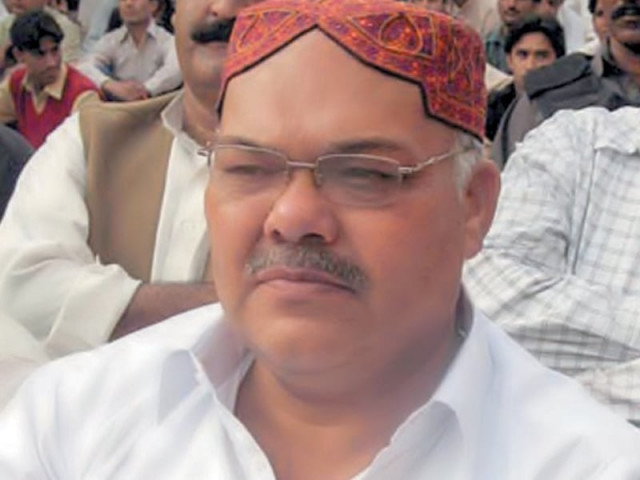Dr Qadir Magsi acquitted in 1988 Hyderabad massacre case
SHC upholds 2003 judgement of trial court, acquitting 41 suspects including STP chairperson

Dr Qadir Magsi was acquitted in the case, along with 41 others. PHOTO: FILE
"There is no merit in the appeals against the acquittal. The acquittal recorded by the trial court in favour of the accused was based upon sound reasons, which require no interference at all," reads the five-page order passed by the division bench, comprising justices Naimatullah Phulpoto and Muhammad Karim Khan Agha. "As such, the appeals against acquittal are without merit and the same are dismissed."
On that day, which is also remembered as a 'Black Friday', around 250 people are said to have been killed in coordinated attacks in different parts of Hyderabad. Armed men in cars and on motorcycles sprayed innocent people with bullets and fled.
At the time, the Muttahida Qaumi Movement (MQM) blamed Sindhi nationalists for the attacks. The following day about 40 Sindhis were killed in Karachi. Retaliatory attacks continued for months in Hyderabad, leading to migration of Sindhis from parts of old Hyderabad and Latifabad.
‘Non-Sindhis and illegal immigrants shouldn't be counted as residents of Sindh’
The leadership of both the MQM and nationalist parties accused each other of setting off the ethnic riots.
Dr Magsi and dozens of his associates were arrested in 1988 and jailed for five years without conviction. In December 1993, all including the STP leader were released on bail. But Dr Magsi faced another period of detention lasting for a few months until an SHC order set him free.
As court proceedings dragged on for years inconclusively, during pendency of the cases the accused filed an application under Section 265-K of the Code of Criminal Procedure. On July 25, 2003, the trial court in Hyderabad exonerated all except eight, holding that there was no probability of the conviction of the accused.
The 2003 judgment, as cited in Wednesday's order, noted that after registration of the case in Hyderabad, the matter was transferred to the special terrorism court in Karachi. The special court, after hearing 192 witnesses' statements, sent it back to Hyderabad.
Sindh’s freedom fighter’s death anniversary passes unmarked
"The accused are facing the terror of trial since 1988 and cases have remained pending in different courts either in Hyderabad or Karachi. Confessions of some of the accused cannot be made basis for conviction of the remaining accused," the 2003 order read.
However, on September 3, 2003, Sindh's additional advocate-general and the Hyderabad public prosecutor filed an appeal against the acquittal in the SHC Hyderabad.
In its order, the SHC bench stated that, "Courts should be very slow in interfering with such an acquittal judgment, unless it is shown to be perverse, passed in gross violation of the law, suffering from the errors of grave misreading. Moreover, the scope of interference in appeal against acquittal is narrow and limited because in an acquittal, the presumption of innocence is significantly added. In other words, the presumption of innocence is double."


















COMMENTS
Comments are moderated and generally will be posted if they are on-topic and not abusive.
For more information, please see our Comments FAQ